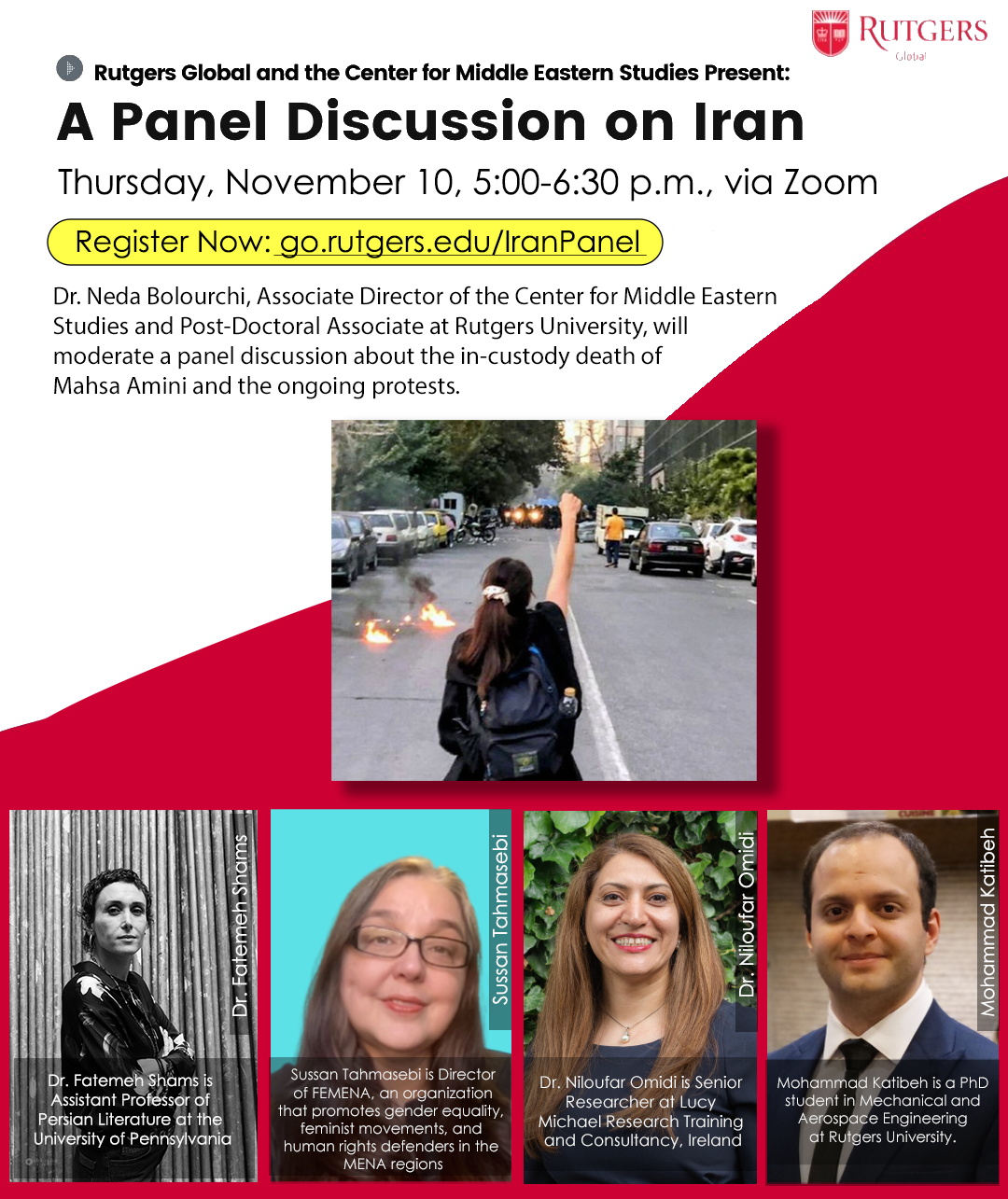A Panel Discussion on Iran
Thursday, November 10, 2022
05:00 pm - 06:30 pm

Dr. Neda Bolourchi, Associate Director and Post Doctoral Associate in Middle Eastern Studies at Rutgers University will moderate a panel discussion about the protests sparked by the death of Mahsa Amini and the implications for the future of Iran.
Panelists include:
Dr. Fatemeh Shams, Assistant Professor of Persian Literature at the University of Pennsylvania. She earned her PhD from the University of Oxford, Wadham College. Her work focuses on the intersection of literature, politics and society. Her critical monograph A Revolution in Rhyme: Poetic Co-option Under the Islamic Republic (Oxford University Press, 2021) is the first comprehensive study of the intersection of poetry and politics in post-revolutionary Iran. It investigates the tension between poets and patrons in the past and present Iran. It also explores the role of state-sponsored literary institutions and the ideological state apparatus in promoting state-sponsored literature in the post-revolutionary Iran. Professor Shams past last year as a Humboldt Foundation-EUME fellow hosted by Forum Transregionale Studien in Berlin in 2021-2022 to work her second book project on the work and life of exiled Iranian poets.
Sussan Tahmasebi, Director of FEMENA, an organization that promotes gender equality and supports women human rights defenders, their organizations, and feminist movements in MENA and Asia regions. FEMENA is especially focused on contexts where civil society space is constrained, there is growing authoritarianism, extremism and conflict. Tahmasebi has over 20 years of experience in promoting women's rights, peace and security at the national, regional and international levels.
Dr. Niloufar Omidi, Senior Researcher at Lucy Michael Research Training and Consultancy, Ireland, working on a wide range of equality and human rights projects. She holds a PhD in International Human Rights Law from the Irish Centre for Human Rights, University of Galway, as well as an LL.M in International Law. Her doctoral thesis, ‘Peoples’ Right to Peace: Enforcement through International Law Instruments’, advanced a methodology to establish a right to peace, as one of the essential prerequisites for a democratic and equitable international order. As a training facilitator, Dr. Omidi has also taught Human Rights Law for Advocates. She is one of the Patrons of the Global Advocacy Program "Towards the Enforcement of the Right to Peace."
Mohammad Katibeh, PhD student in Mechanical and Aerospace Engineering at Rutgers University.
